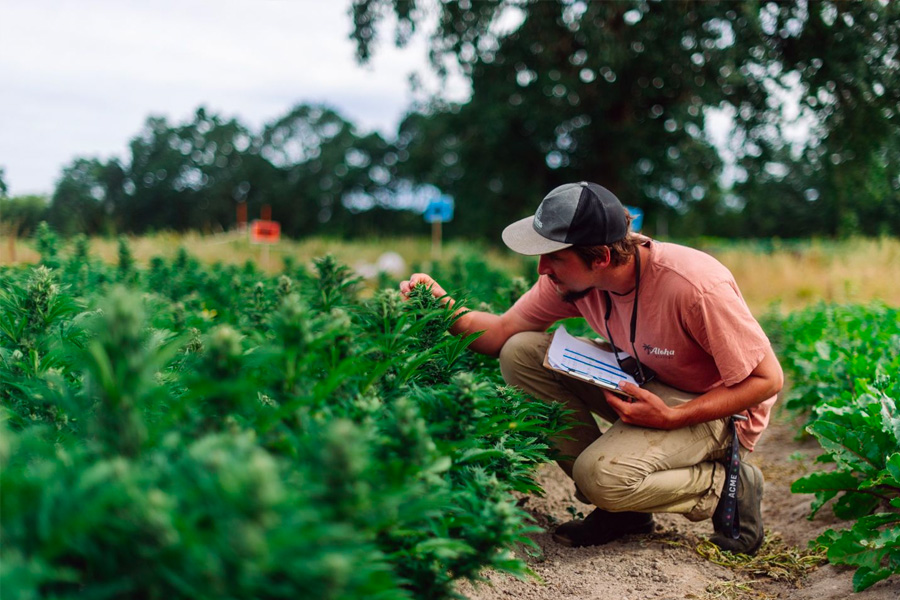The Afternoon Before Transplanting Cannabis Seedlings:
☐ Check the Forecast
Review the weather forecast for the upcoming day to make a final decision about when to transplant cannabis seedlings. If temperatures are expected to be above 70°F, plan to begin planting at or before first light.
☐ Communicate with the Transplant Crew
Inform all members of the transplant crew about the planned start time for planting. Ensure everyone is aware of the schedule and any specific details about the locations where transplanting will take place.
☐ Confirm Transplanting Locations with the Irrigation Team
Communicate the start time of planting and the different locations to the irrigation team. Coordinating irrigation with the planting process ensures proper timing for optimal plant hydration.
☐ Share Any Important Information
Inform managers or crew members about any unusual circumstances or areas of concern that may impact the transplanting process. Keeping everyone informed leads to better coordination and problem-solving.
☐ Soak Cannabis Transplants
Make sure all the transplants have been soaked the night before transplanting. This helps hydrate the plants and prepares them for successful planting the next day.
☐ Prepare the Equipment
Ensure the transplanter is hitched and ready to go. Double-check that all the tools or supplies needed for transplanting are loaded on the tractor. If using a water wheel transplanter, have extra spikes available. Bring any required tools like an impact driver or sockets for adjustments.
☐ Evaluate Cannabis Transplants
Check the transplants to see if they pull easily and then decide which plants to proceed with for planting. Remove any unhealthy or unsuitable seedlings from the batch.
The Morning of Transplanting:
☐ Soak Cannabis Transplants Again
Before loading the transplants onto the transplanter, soak them once more. This additional hydration prepares the plants adequately for planting.
☐ Load Cannabis Transplants Strategically
Load the transplants onto the transplanter based on the order of planting and the corresponding locations in the field. This organized approach saves time and improves efficiency during the planting process.
